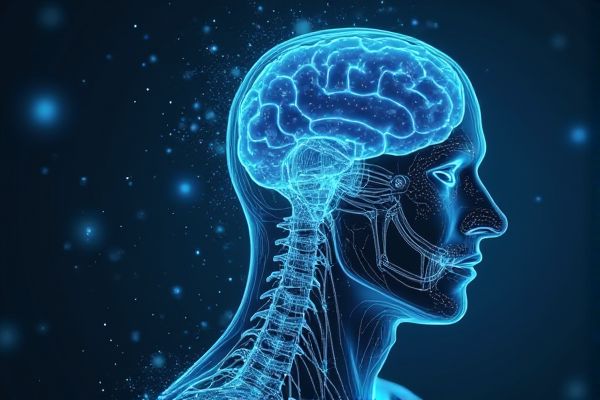
AI consistently revolutionizes medicine by enhancing diagnostic accuracy and personalizing treatment plans. Machine learning algorithms analyze vast datasets, detecting patterns in patient symptoms and outcomes that can lead to earlier disease identification. Natural language processing aids clinicians by summarizing patient histories and extracting critical information from medical texts, boosting efficiency in patient care. Predictive analytics focuses on patient risk factors, enabling proactive intervention and improving overall health management.
AI usage in medicine
Clinical Decision Support Systems
AI utilization in medicine, particularly in Clinical Decision Support Systems (CDSS), presents a significant opportunity for improving patient outcomes. These systems can analyze vast amounts of medical data, aiding healthcare professionals in making more informed decisions. For instance, hospitals that implement CDSS may experience a reduction in diagnostic errors and better treatment plans. The potential for integrating AI in diagnostics suggests a future where healthcare becomes more efficient and personalized.
Predictive Analytics for Disease Outbreaks
Predictive analytics in medicine can enhance early detection of disease outbreaks, allowing for timely interventions. Tools such as machine learning algorithms analyze vast datasets to identify patterns that precede outbreaks. For example, public health institutions like the CDC employ these techniques to forecast potential influenza spikes. This approach can significantly improve resource allocation and preparedness in healthcare settings.
Personalized Medicine and Genomics
AI can enhance personalized medicine by analyzing vast genomic data to identify unique genetic markers. This allows for more tailored treatment plans for patients, improving response rates to therapies. For example, institutions like Mayo Clinic are leveraging AI algorithms to predict drug efficacy based on individual genetic profiles. The possibility of reducing adverse reactions and increasing treatment precision represents a significant advantage in patient care.
AI-assisted Robotic Surgery
AI-assisted robotic surgery enhances precision in medical procedures, potentially reducing recovery times for patients. Institutions like Johns Hopkins University have begun to integrate these technologies, improving surgical outcomes. The chance of minimizing human error during operations is a significant advantage, which can lead to better patient safety. Such advancements may also result in lower overall healthcare costs due to more efficient surgeries.
Early Disease Detection and Diagnosis
AI can improve early disease detection and diagnosis by analyzing large datasets of medical images and patient records. For example, algorithms trained on mammography images can identify potential tumors with higher accuracy than traditional methods. The potential for AI to reduce diagnosis time may lead to faster treatment options for conditions like cancer. Remote monitoring tools can also provide continuous data, enhancing the chances of timely interventions.
Radiology Imaging Analysis
AI in radiology imaging analysis can enhance diagnostic accuracy by identifying patterns that may be missed by human radiologists. For example, AI algorithms can assist in detecting early signs of conditions such as lung cancer in chest X-rays. The integration of AI tools in institutions like Mayo Clinic shows the potential to improve patient outcomes through faster and more precise readings. As technology evolves, the likelihood of AI becoming a standard tool in imaging practices increases, potentially transforming the landscape of medical diagnostics.
Natural Language Processing for Medical Records
AI in medicine, especially through Natural Language Processing (NLP), can significantly enhance the management of medical records. By analyzing unstructured data within these records, NLP can improve patient outcomes by providing insights that are often overlooked by traditional methods. For example, a healthcare institution like Mayo Clinic could utilize NLP algorithms to better track patient histories and outcomes. This technology may also streamline administrative tasks, allowing healthcare professionals to focus more on patient care.
Drug Discovery and Development
AI has the potential to significantly enhance drug discovery and development by streamlining processes and improving outcomes. Machine learning algorithms can analyze vast datasets to identify promising drug candidates faster than traditional methods, as evidenced by recent advancements in firms like BenevolentAI. Predictive analytics can also optimize clinical trial designs, increasing the likelihood of successful outcomes. The integration of AI may reduce costs and timeframes, ultimately leading to more efficient drug development pipelines.
Patient Monitoring and Telemedicine
AI usage in medicine can enhance patient monitoring by providing real-time data analysis and alerts for any abnormalities. Telemedicine platforms can leverage AI algorithms to improve diagnostic accuracy and personalize treatment plans. The integration of AI in these areas may lead to more efficient healthcare delivery and better patient outcomes. For example, institutions like the Mayo Clinic have begun incorporating AI tools to streamline their telehealth services.
Virtual Health Assistants and Chatbots
AI applications in medicine, such as virtual health assistants and chatbots, can streamline patient interactions and improve healthcare efficiency. These tools have the potential to provide timely responses to patient queries, reducing the burden on healthcare professionals. For instance, a chatbot designed for a particular hospital can help patients book appointments and access their medical records. The integration of these AI systems may enhance patient satisfaction and accessibility to medical information.
 techknowy.com
techknowy.com